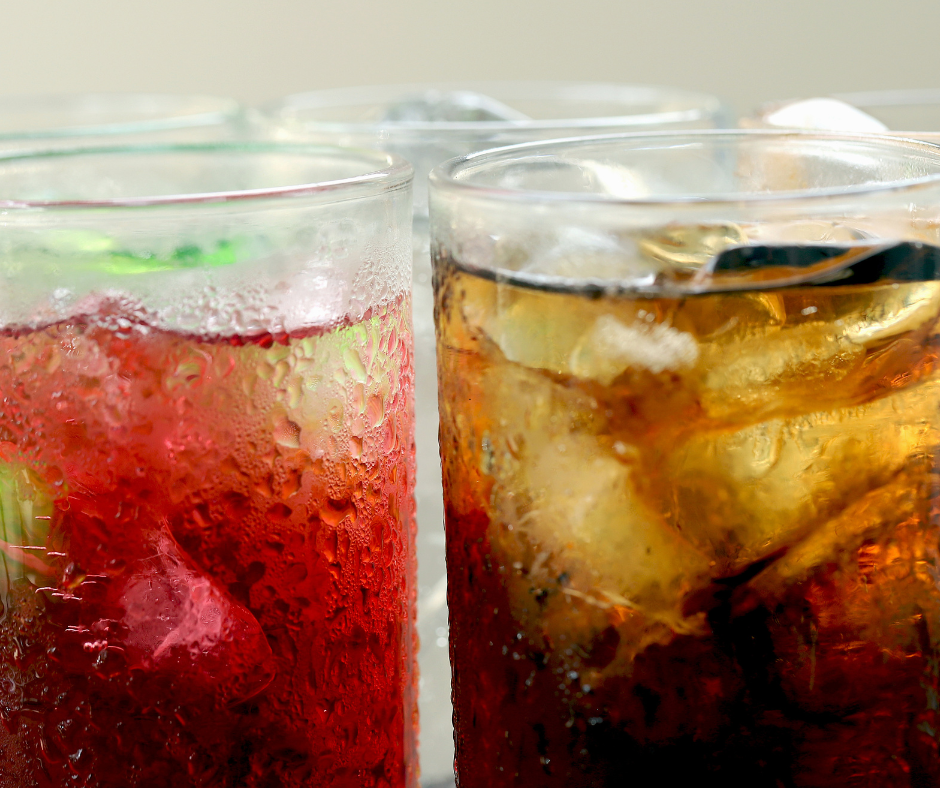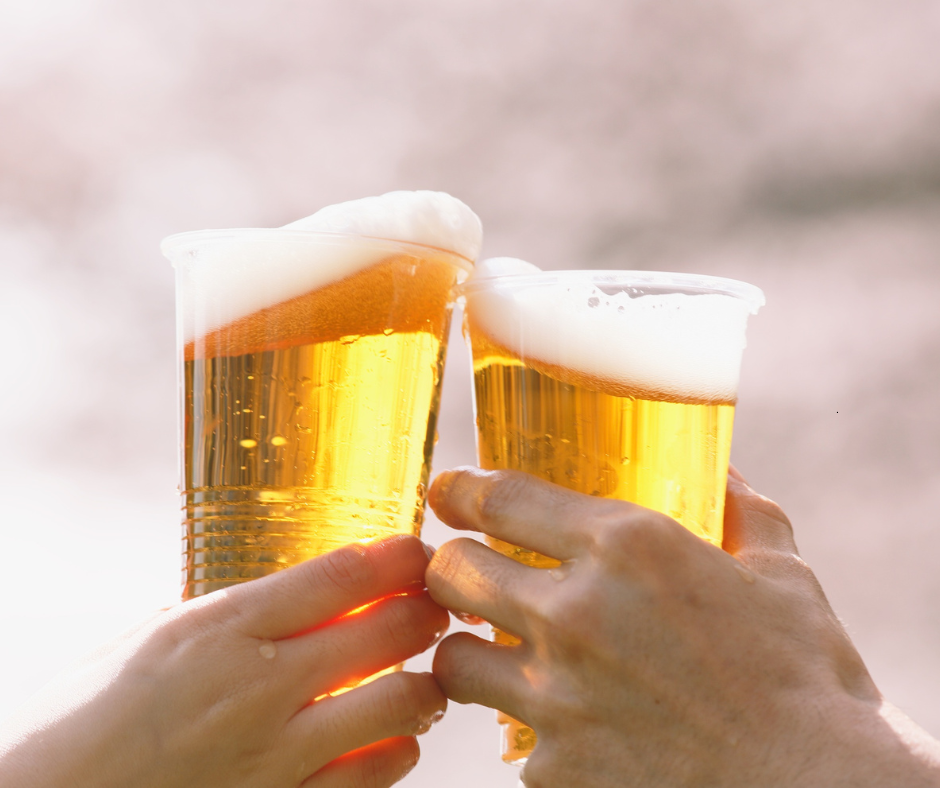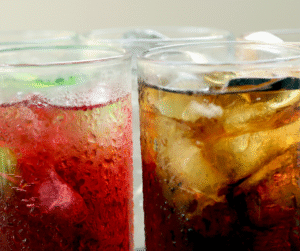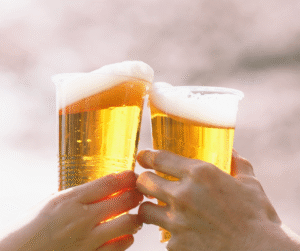You’ve got orders to fill, kegs to clean, and quality to protect. But one thing keeps slowing you down. Manual CO₂ testing. Whether you run a brewery, soft drinks plant, or a bar with a draught system, maintaining CO₂ purity often means constant checks, record keeping, and reacting to problems after they happen.
If that sounds familiar, you’re not alone. Many producers struggle to manage gas quality while staying compliant with regulations like ISO 22000 or FDA Title 21. That’s where an easy maintainable CO₂ purity standard can make a real difference. One that cuts down on manual processes, prevents contamination before it starts, and keeps your drinks tasting the way they should.
Let’s say your head brewer flags an unusual flavour in your flagship pale ale. You suspect the CO₂. But the testing kit is out of date, and sending samples to a lab means days of delay—not to mention the cost. You need a system that just works—quietly, consistently, and without the drama.
In this guide, our experts will walk you through how to:
- Simplify CO₂ purity management
- Reduce manual testing and human error
- Stay compliant with minimal effort
- Protect your product from gas-related off-flavours or inconsistencies
- Use tools like Sure Purity’s Carboguard system to take the guesswork out of gas quality
You’ll learn how the right setup can save time, reduce risk, and ensure your beverages stay carbonated, compliant, and customer-ready—without constant intervention.
Why CO₂ Purity Matters in Beverage Production
The Hidden Cost of Poor CO₂ Quality
In carbonated drink production, CO₂ purity is crucial. You’re not just adding fizz. You’re influencing how a drink tastes. How long it lasts on the shelf, and how it feels in the mouth. If your CO₂ is even slightly compromised, your entire batch can suffer… and worst yet. So can your brand reputation.
When your business relies on consistent carbonation, any variation in gas quality can lead to serious problems:
- A craft beer that suddenly has a metallic aftertaste
- A cola batch with reduced sparkle after bottling
- A fizzy drink that tastes chemically sharp or flat on delivery (and no one likes a flat beer)
These aren’t one-off faults. They’re often the result of CO₂ that isn’t meeting beverage-grade standards, or point-of-use contamination that happens after delivery. Even if the gas itself was clean at the source.
That’s why more producers are looking for an easy maintainable CO₂ purity standard. A system that prevents contamination automatically, rather than relying on spot-checks and guesswork.
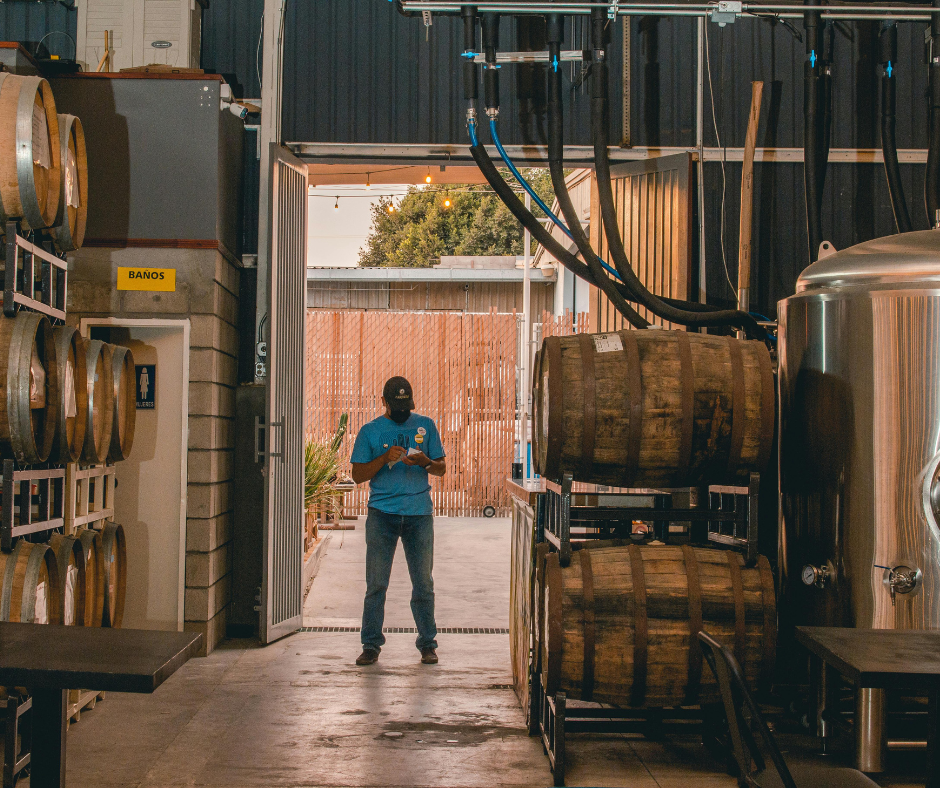
The Real-World Challenges You’re Facing
Maintaining high-purity CO₂ across production isn’t easy, especially if you’re still depending on traditional methods:
- CO₂ supply contamination risks
Even when labelled food-grade, CO₂ can contain benzene, sulphur compounds, hydrocarbons, or moisture. Without filtration, these can enter your drinks unnoticed. - Regulatory burdens that slow you down
Meeting ISO 22000, EIGA guidelines, and FDA Title 21 compliance means staying on top of gas testing, reporting, and documentation. Manual processes make this harder than it needs to be. - Frequent testing eats up resources
Traditional CO₂ testing methods—like lab-based gas chromatography or FTIR—are costly, time-consuming, and not practical for regular use in busy facilities. - Storage and dispensing contamination
Even the cleanest CO₂ can become tainted if pipes are dirty, seals leak, or tanks collect moisture or microbes. Most CO₂ issues happen after delivery, not before.
Sure Purity understands your challenges. That’s why we made our Carboguard systems. To give you a low-effort, always-on solution to CO₂ contamination, testing fatigue, and compliance stress. You’ll spend less time troubleshooting and more time producing drinks your customers love.
What Is an Easy Maintainable CO₂ Purity Standard?
A Smarter, Simpler Approach to Beverage CO₂ Quality
If your team spends too much time testing CO₂, chasing paperwork, or troubleshooting off-flavours, it’s time to rethink your process. An easy maintainable CO₂ purity standard is not just about hitting compliance targets—it’s about building a system that looks after itself, so you don’t have to.
For breweries, soft drink manufacturers, and draught system operators, a maintainable standard means you’re no longer relying on constant manual testing or waiting for lab reports to find out something’s wrong. Instead, you’re preventing issues before they reach the glass.
What Does a Maintainable CO₂ Purity Standard Look Like?
A well-designed CO₂ purity process should include:
- Minimal manual testing – Eliminate the need for daily spot checks and lab-based analysis
- Automated, built-in protection – Use systems that continuously filter CO₂ and monitor for contaminants
- Ongoing purity control without extra effort – Once installed, it should operate reliably in the background
- Built-in compliance – Meet ISO 22000, EIGA, and FDA standards without endless paperwork or oversight
This is exactly what Sure Purity’s Carboguard system delivers. It gives beverage producers real-time contaminant removal at the point of use. This protects product quality with zero need for constant intervention.
The Pitfalls of Manual CO₂ Management
If you’re still relying on manual co2 purity measurement checks or basic food-grade certification, you’re likely facing challenges such as:
- Time-consuming testing Lab testing like gas chromatography and FTIR is expensive and slow. Even portable analysers require regular calibration and interpretation.
- Inconsistent results
Human error during testing or reporting increases the chance of undetected contamination, especially when staff are stretched or untrained in gas analysis. - Compliance stress
Manually tracking CO₂ quality to meet ISO or FDA standards means constant documentation and reactive problem-solving—not ideal in a fast-moving production environment.
An easy maintainable CO₂ purity standard removes these risks. It gives you peace of mind, consistent carbonation, and full confidence in your gas quality. Without the usual maintenance burden.
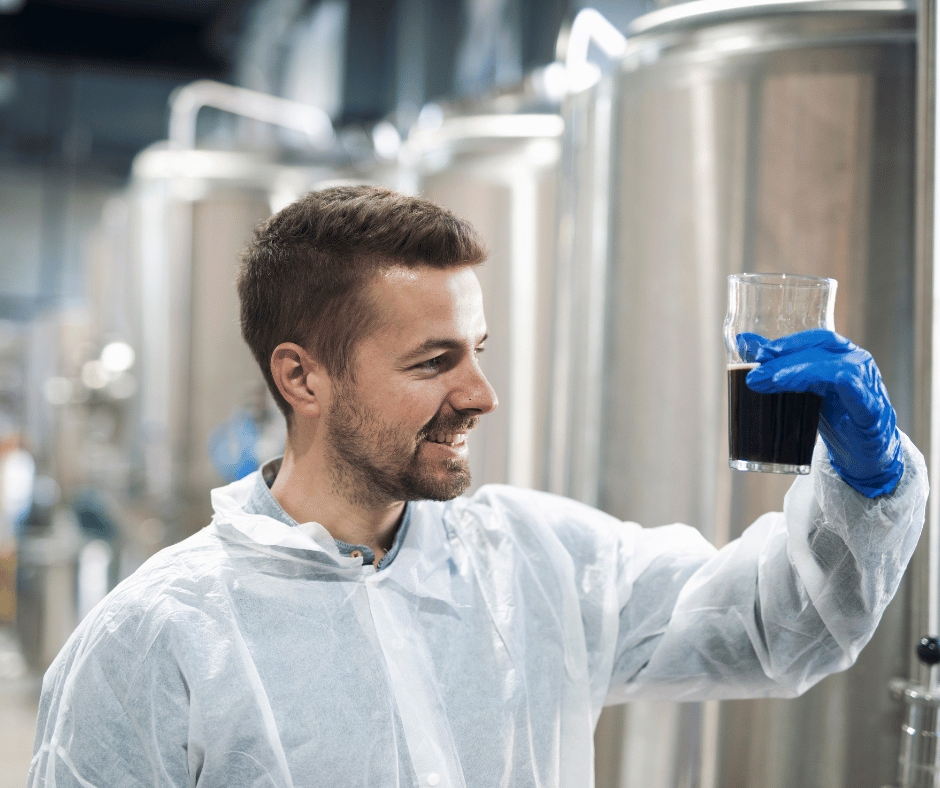
How to Maintain CO₂ Purity with Minimal Effort
Maintaining gas quality shouldn’t be a full-time job. With the right setup, you can protect your beverage carbonation and meet compliance standards—without daily testing or complex maintenance routines. Here’s how to establish an easy maintainable CO₂ purity standard that works for your team, not against it.
1. Choose a CO₂ Supplier with Verified Purity Standards
Not all CO₂ is equal. Many suppliers offer food-grade CO₂ that still contains trace contaminants like benzene, sulphur compounds, or moisture. If you’re aiming for consistent carbonation and safety, you need beverage-grade CO₂ backed by testing and certification.
When sourcing CO₂, ask your supplier to confirm:
- ISO 22000 compliance (Food Safety Management)
- EIGA specifications for beverage-grade gas
- FDA Title 21 CFR adherence for food and beverage use
- Purity certificates and batch test reports for full transparency
Even with certification, always assume that CO₂ can be compromised after delivery—which is why filtration at the point of use remains essential.
2. Implement CO₂ Filtration at the Point of Use
This is where most gas contamination occurs—during storage, transfer, or dispensing. Pipes corrode, seals fail, tanks gather moisture, and microbes thrive in neglected systems.
Sure Purity’s Carboguard system solves this with:
- Multi-stage filtration to remove benzene, hydrocarbons, sulphur compounds, and volatile organics
- Continuous contaminant removal, so there’s no need for constant lab testing
- Easy integration into breweries, bottling plants, or draught systems with minimal disruption
- A compact option, Carboguard Mini, for bars or small-scale producers
Once installed, Carboguard provides reliable CO₂ purity protection at the exact point your drinks are carbonated—making it your most important line of defence.
3. Automate CO₂ Monitoring and Testing
Manual CO₂ testing takes time, skill, and specialist equipment. In a busy production setting, it’s easy to miss a step or delay testing until after a quality issue emerges.
Instead, automate your testing process using:
- Real-time CO₂ purity sensors that alert you to contamination instantly
- Electrochemical detection of sulphur compounds, hydrocarbons, and trace gases
- Automated gas chromatography for periodic high-accuracy spot checks
- Sure Purity’s Carboguard system as a continuous safeguard—doing the hard work in the background so your team doesn’t have to
This combination reduces labour, improves accuracy, and helps your business maintain compliance effortlessly.
4. Handle and Store CO₂ the Right Way
Even certified, filtered CO₂ can become contaminated if stored or handled poorly. Follow these best practices to keep your gas clean from source to service:
- Store cylinders upright in cool, dry environments, away from direct sunlight
- Ensure all connections are airtight to avoid oxygen ingress or pressure loss
- Inspect and clean gas lines regularly to prevent microbial buildup and residue
- Document all inspections, filter changes, and maintenance to stay compliant and audit-ready
We provide you with the right guidance and support, so that you can implement best-practice CO₂ handling routines that reduce contamination risk long term.
How Sure Purity’s Carboguard System Makes CO₂ Purity Maintenance Effortless
If your team is still relying on manual CO₂ checks, patchy lab tests, or food-grade certification alone, you’re working harder than you need to. The reality is, manual CO₂ purity testing is time-consuming, inconsistent, and reactive. You often find problems after they’ve affected your product.
Sure Purity offers a better way.
The Carboguard system is designed to provide automated, low-maintenance CO₂ filtration that fits seamlessly into your beverage production setup—whether you’re running a full-scale brewery, a soft drinks line, or a small-batch carbonation system in a bar.
With Carboguard, you get:
- Automatic multi-stage filtration that removes benzene, sulphur compounds, hydrocarbons, and volatile organic compounds (VOCs)
- Real-time contaminant removal, preventing CO₂-related off-flavours before they reach your drinks
- Built-in regulatory support, helping you meet ISO 22000, EIGA, and FDA CO₂ purity standards
- Simple installation and compatibility with existing CO₂ lines—no major overhaul required
The result? A reliable, maintainable CO₂ purity standard that doesn’t rely on constant monitoring or technical expertise to keep working.
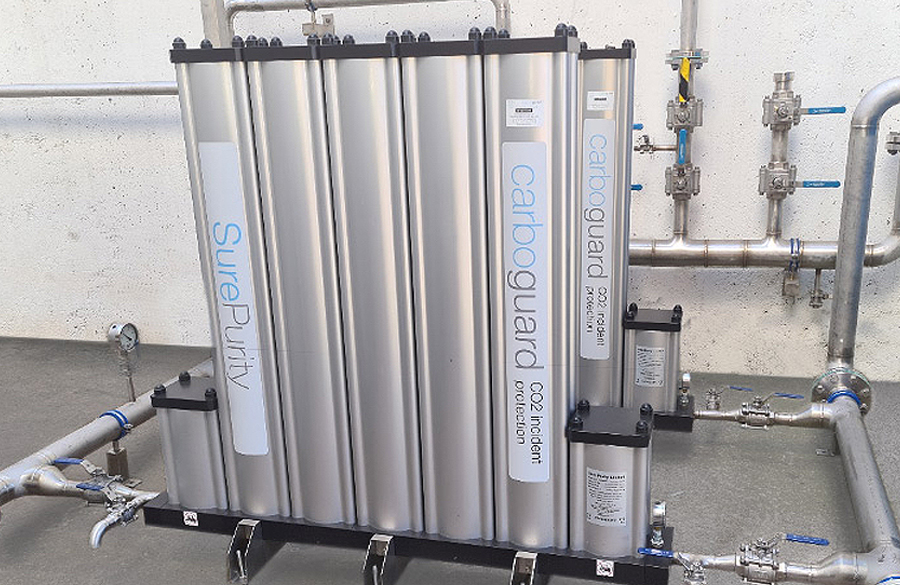
Case Study Highlight: Royal Unibrew Europe
Royal Unibrew, one of Europe’s largest beverage producers, needed a way to ensure consistent CO₂ purity across multiple production sites. Their priority was to reduce contamination risks without increasing operational complexity.
By implementing Sure Purity’s Carboguard filtration systems, they achieved:
- Consistently high CO₂ quality across all lines
- Reduced reliance on manual gas testing
- Improved product stability and carbonation consistency
- Ongoing compliance with food safety standards across international facilities
The Carboguard system gave Royal Unibrew a low-maintenance, high-reliability solution—enabling them to focus on production without worrying about CO₂ quality.
Frequently Asked Questions (FAQs)
What is an easy maintainable CO₂ purity standard?
An easy maintainable CO₂ purity standard is a process or system that keeps CO₂ clean and compliant without constant manual testing. It uses automated filtration and monitoring to ensure consistent gas purity with minimal intervention from your team.
Why is CO₂ purity important for beverage production?
CO₂ affects carbonation, taste, aroma, and shelf life. Contaminated gas can cause off-flavours, flat drinks, and regulatory issues. Maintaining high CO₂ purity ensures product consistency and protects your brand reputation.
What are the risks of not testing CO₂ purity regularly?
If you don’t monitor your CO₂ supply, you risk:
- Off-flavours from sulphur compounds or hydrocarbons
- Reduced carbonation or flat drinks
- Failed regulatory audits
- Costly product recalls or reputational damage
How can I reduce the effort needed to maintain CO₂ purity?
Install a point-of-use filtration system like Sure Purity’s Carboguard. It removes contaminants automatically, helping you maintain gas quality without routine testing or lab analysis.
Can food-grade CO₂ be used in beverage production?
Not safely. Food-grade CO₂ meets basic safety standards but can still contain benzene, hydrocarbons, and sulphur compounds. Beverage-grade CO₂ is more strictly purified and should always be used for drinks.
What’s the best way to prevent CO₂ contamination?
Use multi-stage filtration at the point of use. Even clean CO₂ can become contaminated during storage or dispensing. A solution like Carboguard removes harmful compounds right before carbonation.
How does Sure Purity’s Carboguard System help?
Carboguard provides automatic filtration of CO₂ before it enters your drink. It removes harmful impurities like benzene, sulphur, and hydrocarbons, helping you meet industry standards and maintain flavour consistency.
How often should I test my CO₂ supply?
If you don’t use filtration, test every delivery and check regularly during production. With Carboguard, testing frequency drops significantly because filtration happens in real-time, minimising contamination risk.
Can poor CO₂ quality impact carbonation?
Yes. Contaminants in CO₂ can cause drinks to lose their sparkle or foam inconsistently. This affects product experience and could lead to complaints or returns from customers and retailers.
Is manual CO₂ purity testing still necessary with filtration?
It’s still advisable to do periodic spot-checks, but with Sure Purity’s filtration system in place, day-to-day manual testing is significantly reduced or eliminated.
Does Carboguard work with existing beverage systems?
Yes. Carboguard is designed to integrate easily with standard CO₂ lines in breweries, soft drink plants, and bars. It can be installed with minimal disruption to your current setup.
What CO₂ standards should suppliers meet?
Look for CO₂ that complies with:
- ISO 22000 (Food Safety Management)
- EIGA Beverage-Grade CO₂ Standards
- FDA Title 21 CFR
Always ask for purity certificates and test reports.
How do I know if my CO₂ is contaminated?
Common signs of contaminated CO₂ include:
- Flat or under-carbonated drinks
- Rotten egg or chemical odours
- Foamy or cloudy appearance
- Customer complaints about taste or smell
What contaminants should I test CO₂ for?
Key contaminants include:
- Benzene (a carcinogen)
- Hydrogen sulphide (rotten egg smell)
- Acetaldehyde (chemical aroma)
- Moisture and oxygen (oxidation risk)
- Microbial content (causes cloudiness and spoilage)
Final Thoughts: CO₂ Purity Compliance Without the Hassle
Relying on manual CO₂ testing is no longer sustainable. It takes time, invites inconsistency, and puts your product at risk. Whether you’re running a busy brewery or managing a high-volume soft drinks line, you need a system that delivers consistent results without constant oversight.
That’s where an easy maintainable CO₂ purity standard makes all the difference.
With Sure Purity’s Carboguard system, or carboguard mini, you get exactly that—a fully integrated, low-maintenance solution that filters out harmful contaminants, supports regulatory compliance, and maintains carbonation and taste from the first pour to the last.
- No more guesswork
- No more flavour issues from invisible contaminants
- No more falling behind on compliance
Carboguard works in the background, protecting your CO₂ supply so you can focus on what matters most—producing drinks your customers love.
Contact us today to protect your product. Simplify your process and maintain purity with ease.

